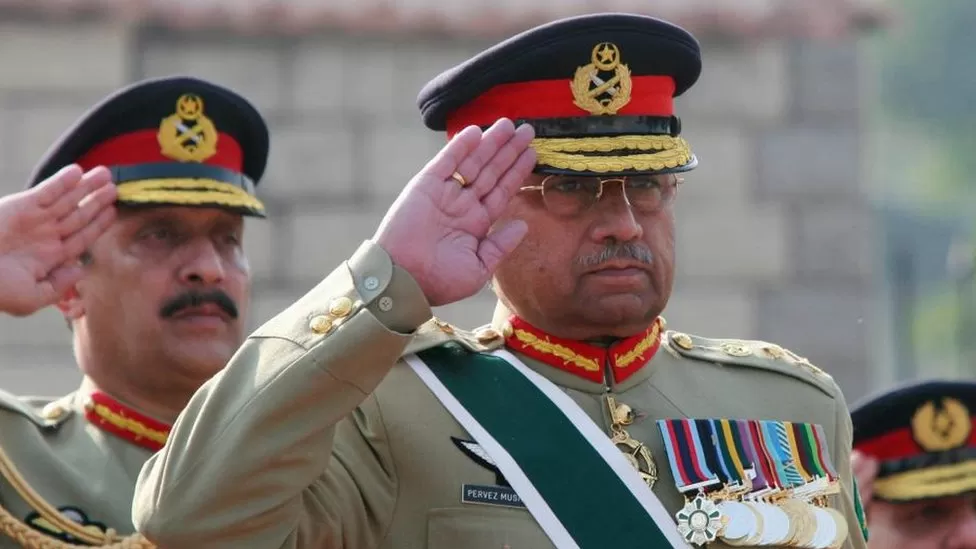Thousands have attended funeral prayers for Pakistan’s divisive former president General Pervez Musharraf.
The ex-military ruler, who was president from 2001-2008, died in Dubai on Sunday after a long illness, and his body was repatriated to Pakistan.
The prayers took place at a military compound in Karachi, but senior figures were notably absent, including the army chief and Pakistan’s current president.
An estimated 10,000 people attended the prayers, mainly retired and serving military officers, AFP news agency reported.
Neither the army chief, prime minister nor president was there, but local media reported that some politicians and former army chiefs attended.
Musharraf’s body was later transported to a nearby military graveyard where the coffin, draped in the national flag, was buried as hundreds of people watched surrounded by tight security.
In a statement, Pakistan’s powerful military expressed its “heartfelt condolences”, while President Arif Alvi prayed “for eternal rest of the departed soul”.
General Musharraf was born in Delhi in August 1943, but his family joined millions of other Muslims in the newly created Pakistan, following the partition of India in 1947 after British rule ended.
He entered the Pakistan Military Academy in 1962, serving in the Indo-Pakistani war of 1965, and throughout his career had a “love-hate” relationship with neighbouring India.
As the head of the armed forces, General Musharraf seized power in a bloodless coup in October 1999, before formally appointing himself as president two years later.
As Pakistan’s leader at the time of the United States “war on terror” in the wake of the 11 September terror attacks in 2001, Musharraf controversially supported the American-led military campaign to oust the Taliban regime in neighbouring Afghanistan, which had harboured Muslim radicals blamed for the attacks.
In January 2002, he issued a strong condemnation of extremism, pledging to fight Islamist terrorism in Pakistan.
This pro-Western agenda angered many militants at home, and there were several assassination attempts made against him.
In 2008 he suffered defeat in the polls and left the country six months later.
He was embroiled in a number of court cases following his loss of power, including accusations of failing to provide adequate security for former Pakistani Prime Minister Benazir Bhutto, whose assassination by the Taliban in 2007 sent shockwaves around the world.
Musharraf’s career ultimately ended in disgrace, when he was sentenced to death in absentia for treason in 2019. Though that sentencing was later reversed, he never returned to Pakistan.
An editorial in Dawn, Pakistan’s largest English-language daily, said Musharraf leaves behind “a mixed legacy”, and that while he navigated some difficult times around the events of 9/11, his actions also “set Pakistan back several years”.
“It should be left to history to judge him,” it said.











